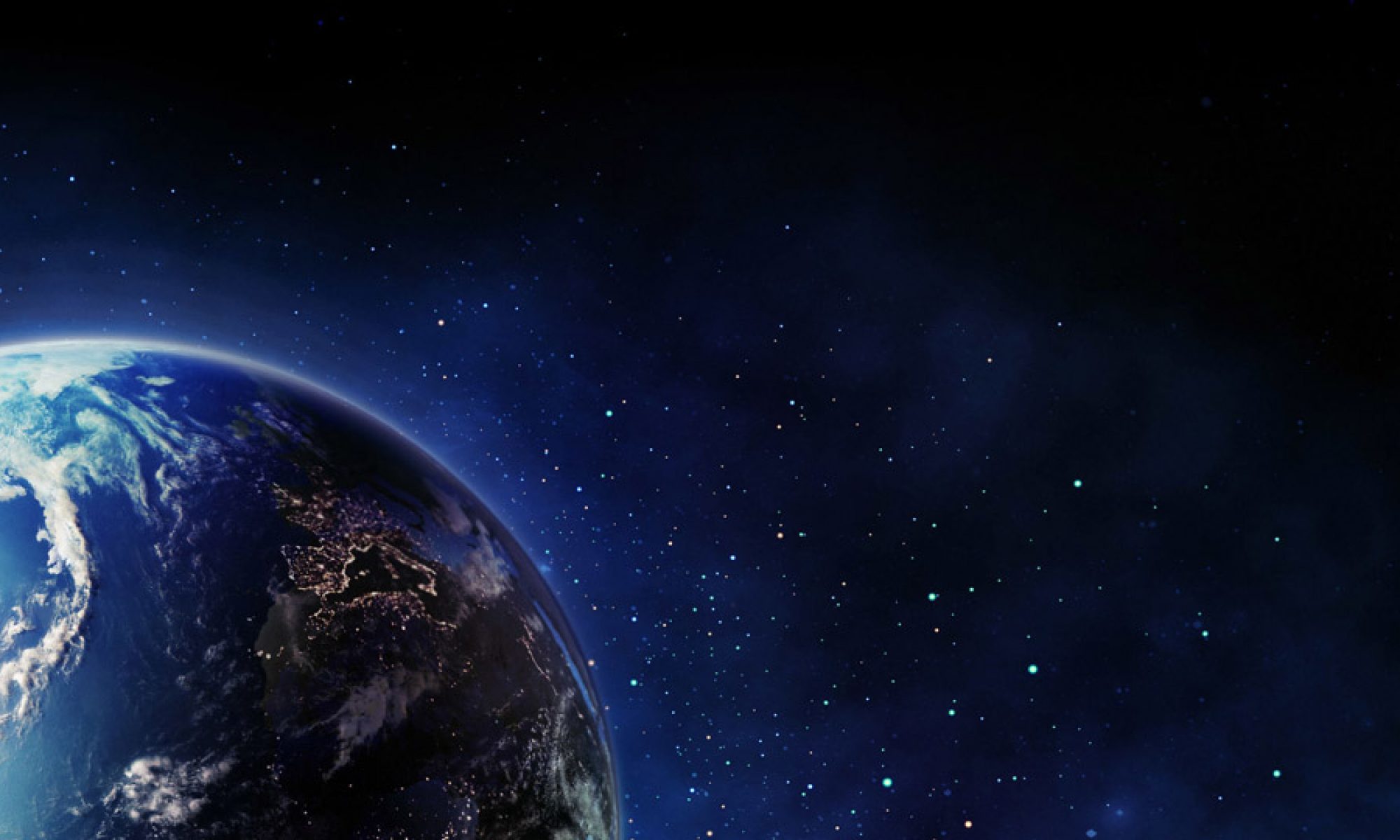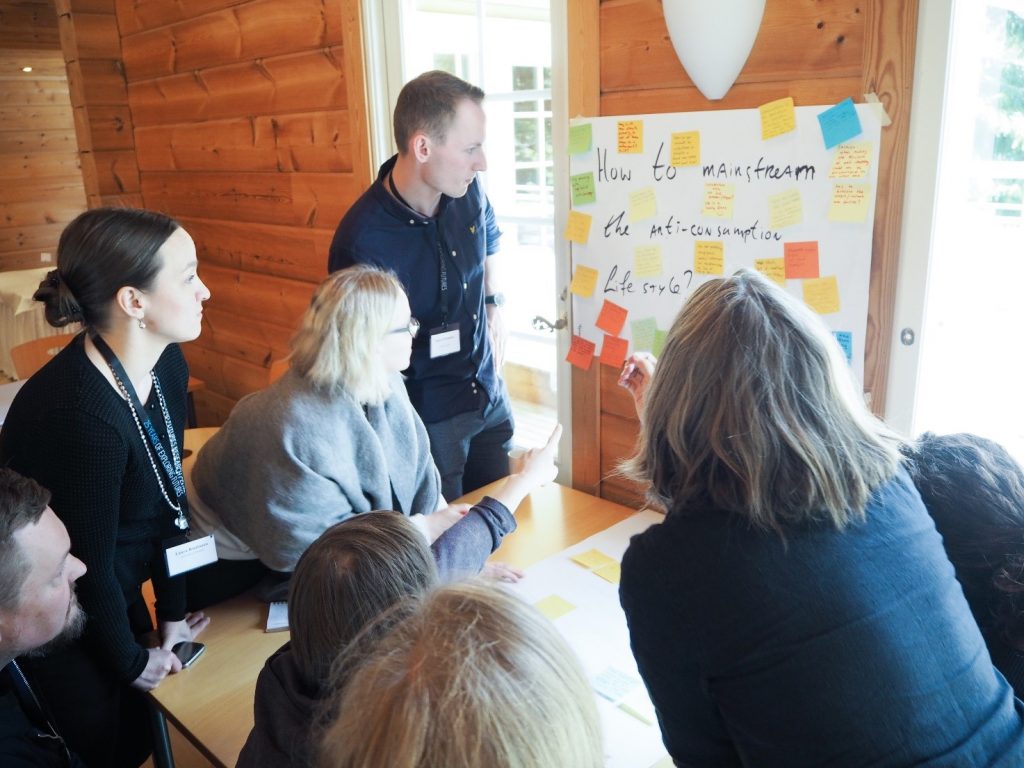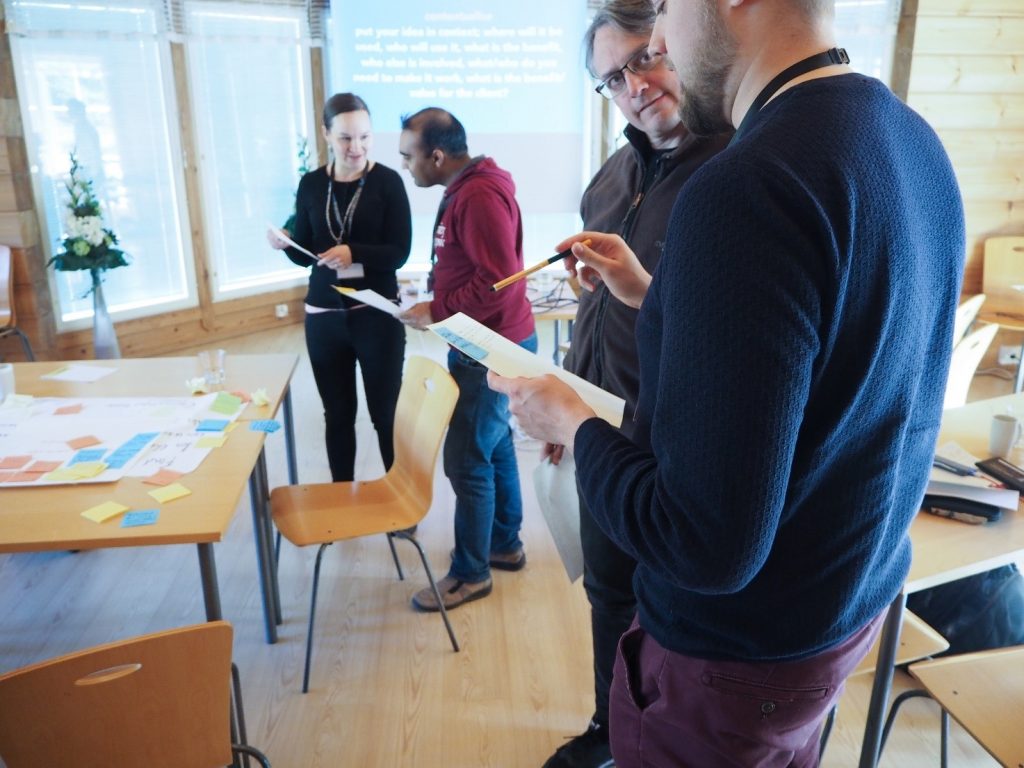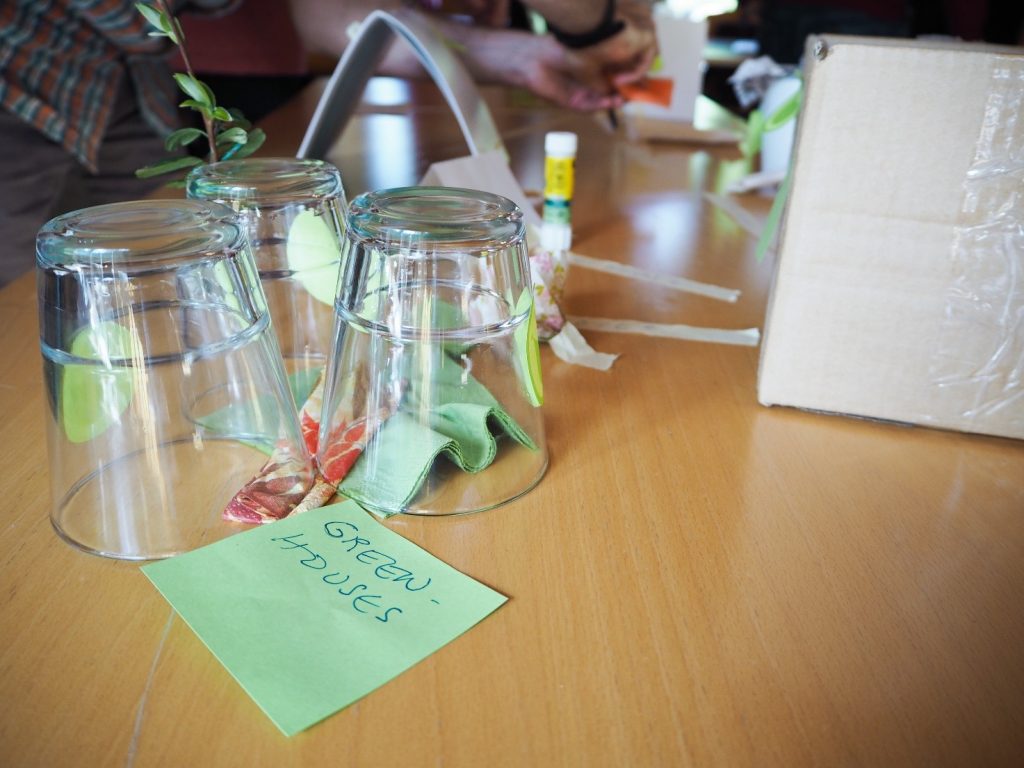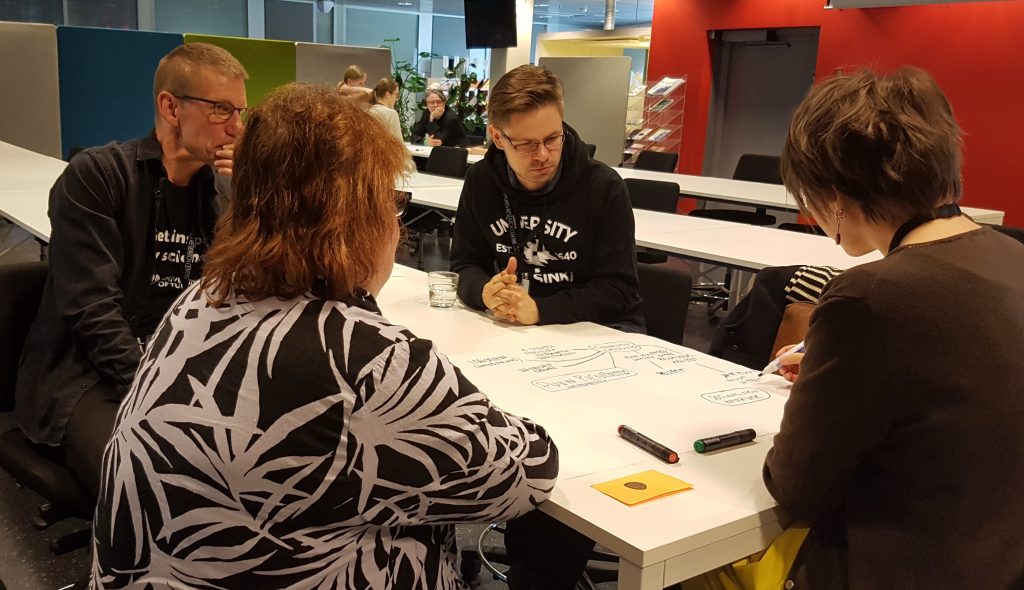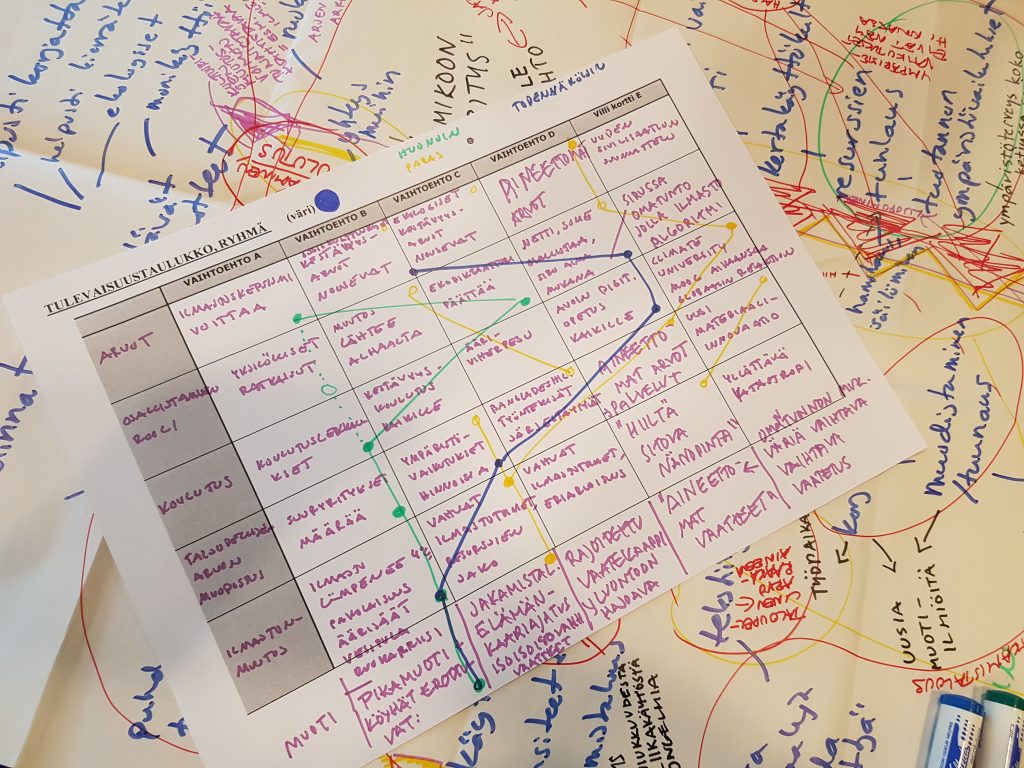Spring has been busy time in the Climate University community. We had awesome and inspiring workshops in Turku (Innovations in education for sustainable future, 7.-8.5.) and in Lahti (Circular economy and renewable energy solutions, 10.-11.6.). Huge thanks to the local organizers! Climate University has also been presented in many forums, at least in World Summit of Students for Climate, Universities and Climate Change, OKM kehittämishankkeiden kevätseminaari, Pedaforum, EuroFlux, Nordplus ABS Nordic Teachers network, MODEST teacher network, Physics days, Helsinki Sustainability Science Days, and Helsinki Think Corner.
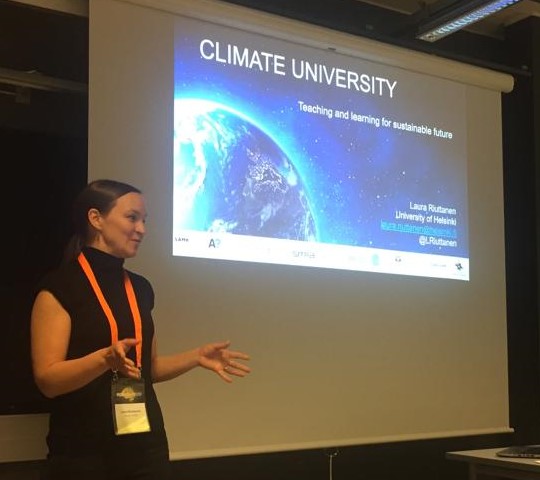
Figure 1: Coordinator Laura Riuttanen presenting Climate University at Pedaforum 6.6.2019. Photo by Taina Ruuskanen.
In the beginning of the year, Climate University asked the partners about what is needed in the society to be able to tackle the huge challenges of climate change and sustainability. Assessment of Needs was accepted by the steering group 17.5. and can be read here. A revised version of the new course plans has been prepared by the working group, and was accepted by the steering group 17.6. By the end of 2020, Climate University will do the following free online course materials available for everyone:
- “Sustainable.now – piecing together climate change and sustainability”
- Collaborators: LUT-University, University of Turku, University of Oulu and University of Helsinki
- “SystemsChange.now – systems thinking in managing climate change”
- Collaborators: Aalto University, Univeristy of Turku, University of Helsinki and University of Tampere
- Solutions.now – a project course in collaboration with working life
- Collaborators: Turku University of Applied Sciences, Metropolia University of Applied Sciences, Lahti University of Applied Sciences and University of Helsinki
- Statistical tools for climate and atmospheric science
- Collaborators: University of Eastern Finland, University of Helsinki
- Climate communication
- Collaborators: University of Oulu, University of Helsinki
- “Climate.now for schools”
- Collaborators: University of Oulu, University of Tampere, University of Helsinki
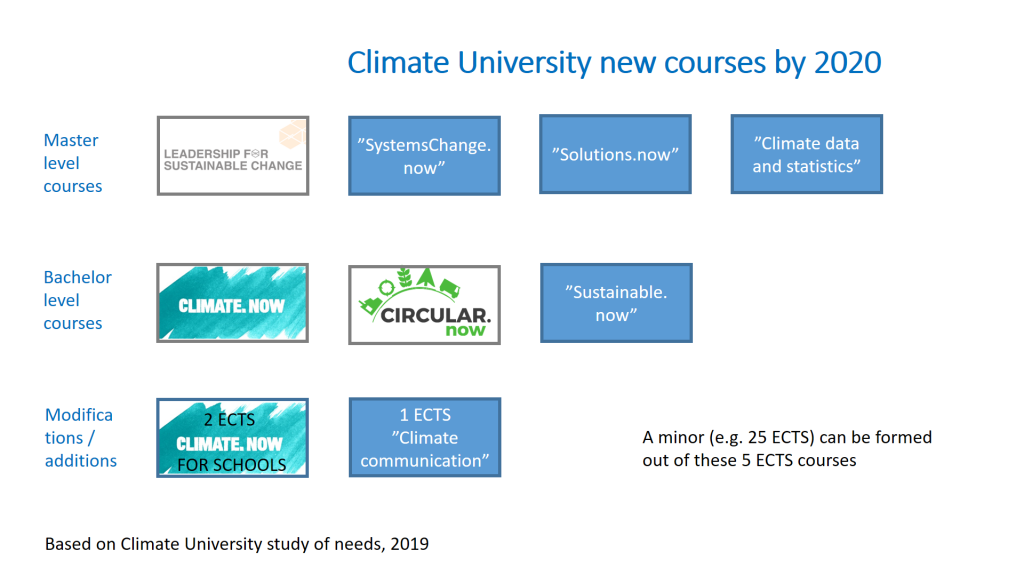
Figure 2: Climate University courses by the end of 2020.
Working groups of these new materials have started and will work intensively next Autumn. In the coming Climate University workshops, the community and collaborators have an opportunity to comment and contribute to the new materials. In October we will meet in Oulu 10.-11.10.2019 in the Climate University workshop ‘Climate education and communication‘. Especially our school collaborators are invited to that workshop to discuss the topic and the coming climate online course for schools. In November 19-20 Metropolia University of Applied Sciences is hosting a Climate University workshop on ‘Sustainable Communities‘, in which you have the opportunity to comment the other course plans, and to which especially our working life collaborators are invited to. Registration to these workshops will open early Autumn.
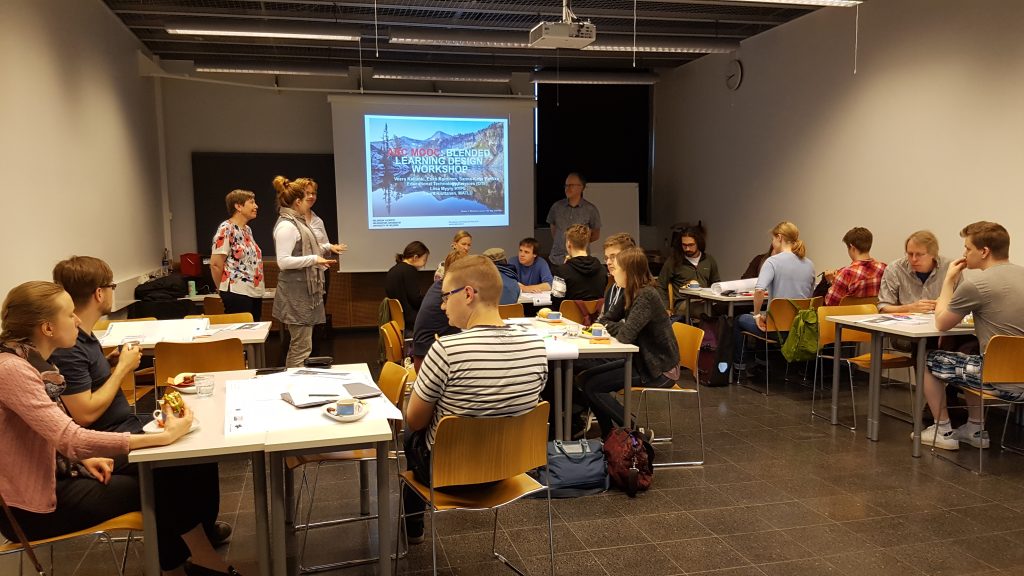
Figure 3: University of Helsinki organized a workshop on digital pedagogy ABC in Helsinki 13.6.2019 for the Climate University new working groups, together with the Digital Leap of the Masters’ Programme in Atmospheric Sciences.
In the beginning of September starts the online course ‘Leadership for sustainable change‘ in collaboration with University of Helsinki and University of Tampere. You are warmly welcome to the course, via either of these universities, or via the Open University of Helsinki!
In October starts also Climate.now course in University of Oulu, University of Jyväskylä and University of Helsinki. The University of Helsinki course will also be available via Open University.
Now it is time to rest a bit, so that in the Autumn we are ready to change the world! Have a lovely summer everyone!
Laura
